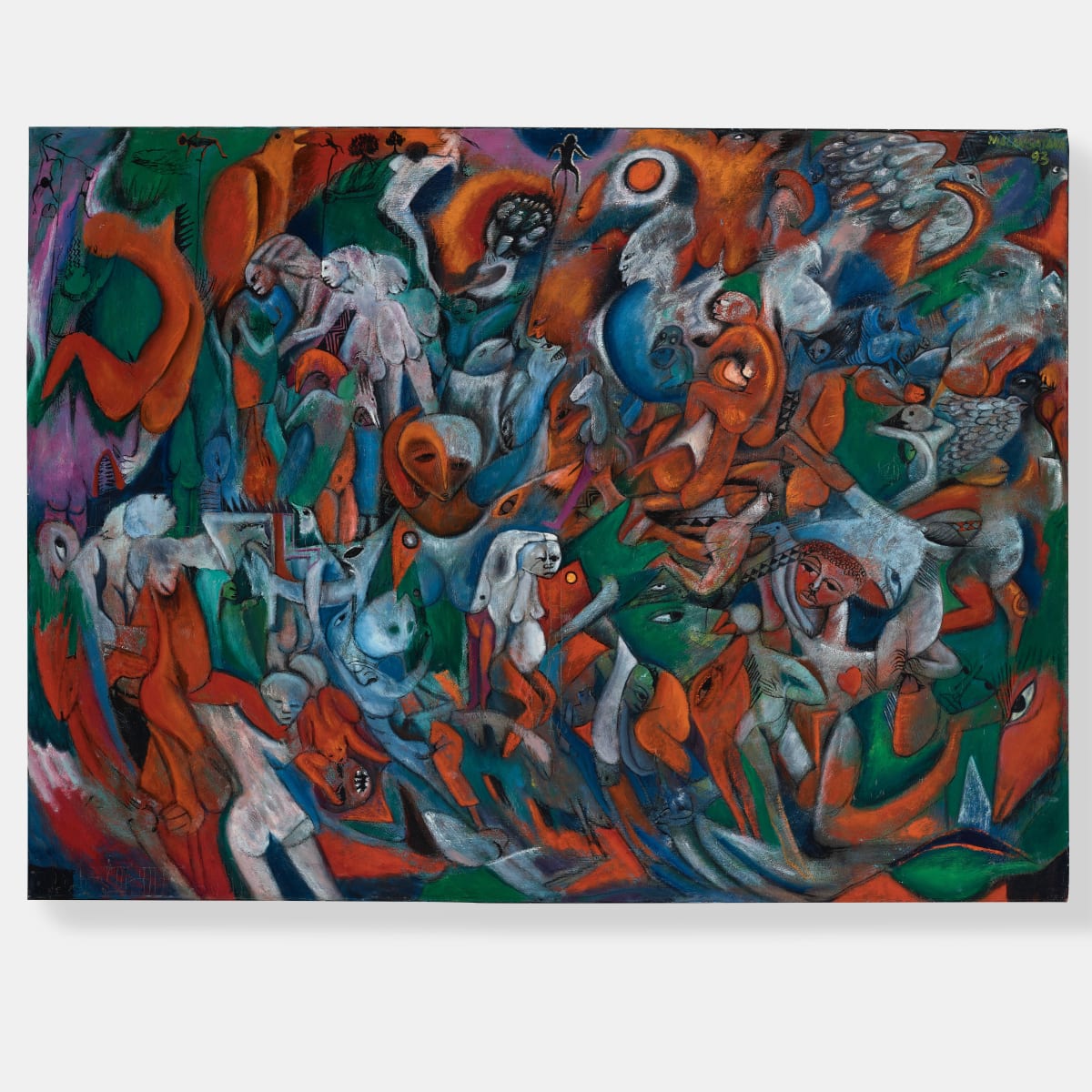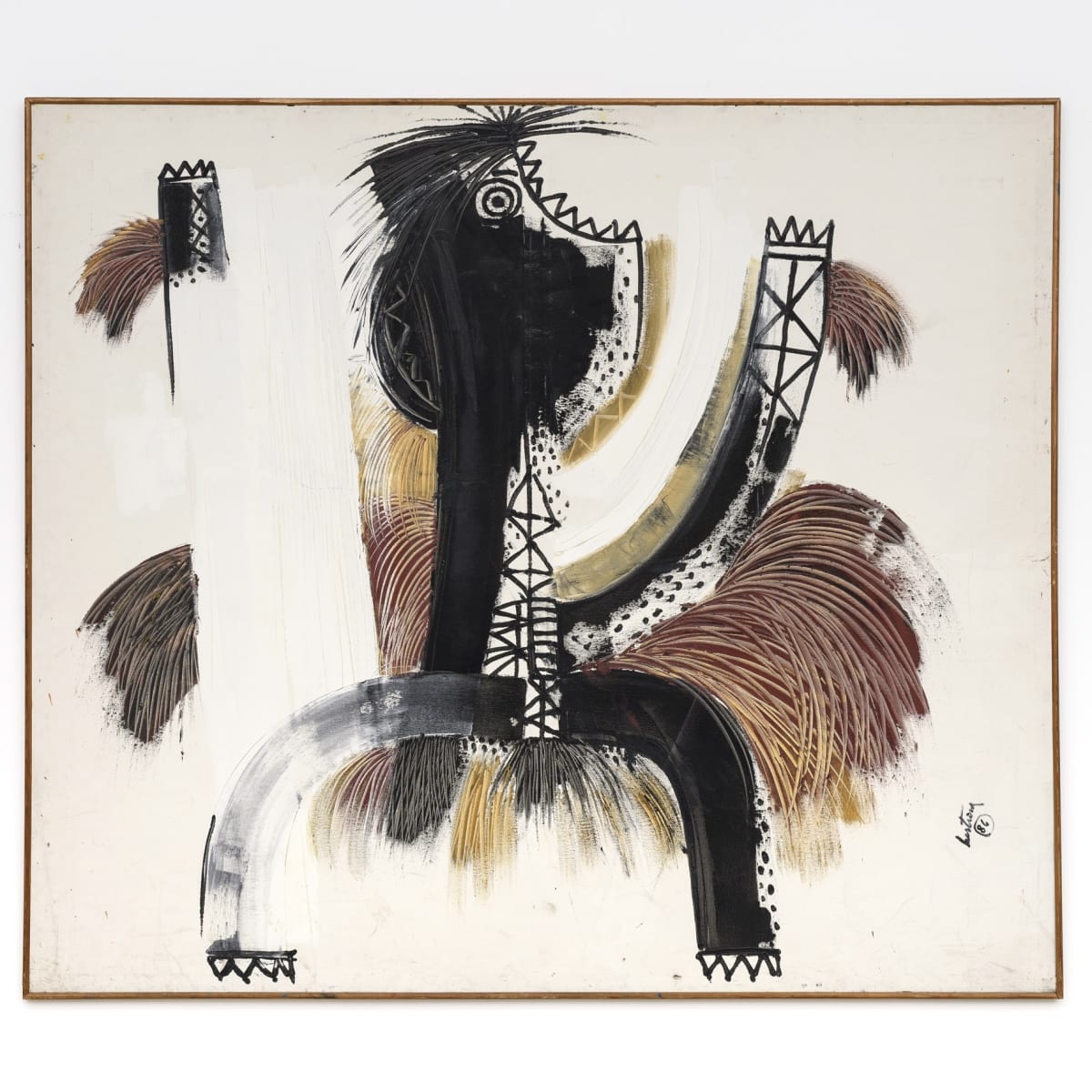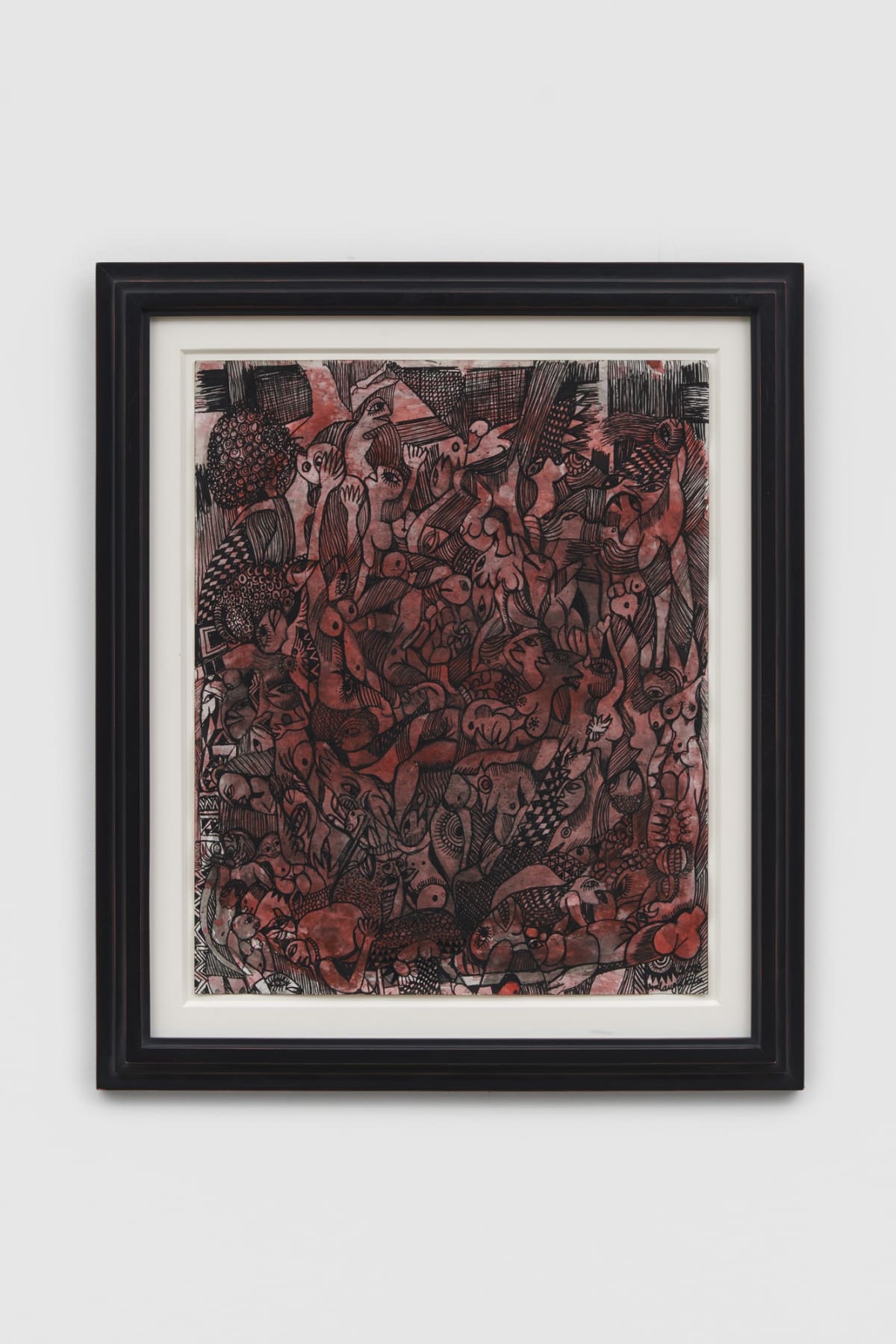Richard Saltoun Gallery will present a booth with paintings and works on paper by two pivotal Mozambican artists, Bertina Lopes (1924 - 2012) and Malangatana Ngwenya (1936-2011).
Maputo, Lisbon, Rome maps the geographical, artistic, political and personal journeys of both artists, underpinned by mutual friendship and shared experience. The exhibition highlights the relationship between their life and work along the themes of cultural identity, diaspora and the Mozambican anti-colonial struggle.
Ngwenya was a prominent figure in Mozambique, and played an important role in imagining a broader Africanist aesthetic in Europe and America. He joined the Mozambique liberation movement FRELIMO in 1964. The same year he was detained by the Portuguese secret police for his involvement with FRELIMO and imprisoned for eighteen months. The period between his release and 1971, when he was awarded a grant from the Lisbon-based Gulbenkian Foundation to study printmaking and ceramics in Portugal, was an important one for his art. During this time he continued to depict the tragic consequences of war – violence, hunger and death – and was prolific in his output, holding numerous exhibitions in Mozambique and accepting commissions to paint large-scale murals.
After independence, Ngwenya became more active politically and his artistic production declined between 1974 and 1978.
Bertina Lopes was a Mozambican painter, sculptor, and activist whose work highlighted the social criticism and nationalistic fervor that influenced other Mozambican artists of her time. Born in Maputo, Lopes was the daughter of a Portuguese father and African mother. At an early age she left Mozambique to study in Lisbon where she was inspired by and engaged with the avant-garde painting of Portuguese Modernism as well as contemporary artistic international movements. After returning to Mozambique in 1953, cultural nationalism became a crucial influence both ideologically and artistically. Much of her body of work presents not only African iconography but also political events of the time. Following a tumultuous, forced return to Europe, and her exile from Portugal, Lopes eventually moved to Rome in 1963 where she remained for the rest of her life: during this period the subjects of African identity took on a new meaning, expressing an end to colonialism and a desire for independence.
Her works from 1970 until the late 1980s connote the grave economic and military problems of Mozambique’s victory for independence as well as the subsequent civil war ending in 1992. From the late 1990s up to the 2000s, Lopes’ work denotes a freedom of gestural abstract works and extraordinary colour, often with industrial paints.
![Bertina LOPES, Dedica alla Spagna [Dedicated to Spain], 1967](https://artlogic-res.cloudinary.com/w_1200,c_limit,f_auto,fl_lossy,q_auto/ws-richardsaltoun2/usr/images/events/images/159/blo013-1-4.jpg)




